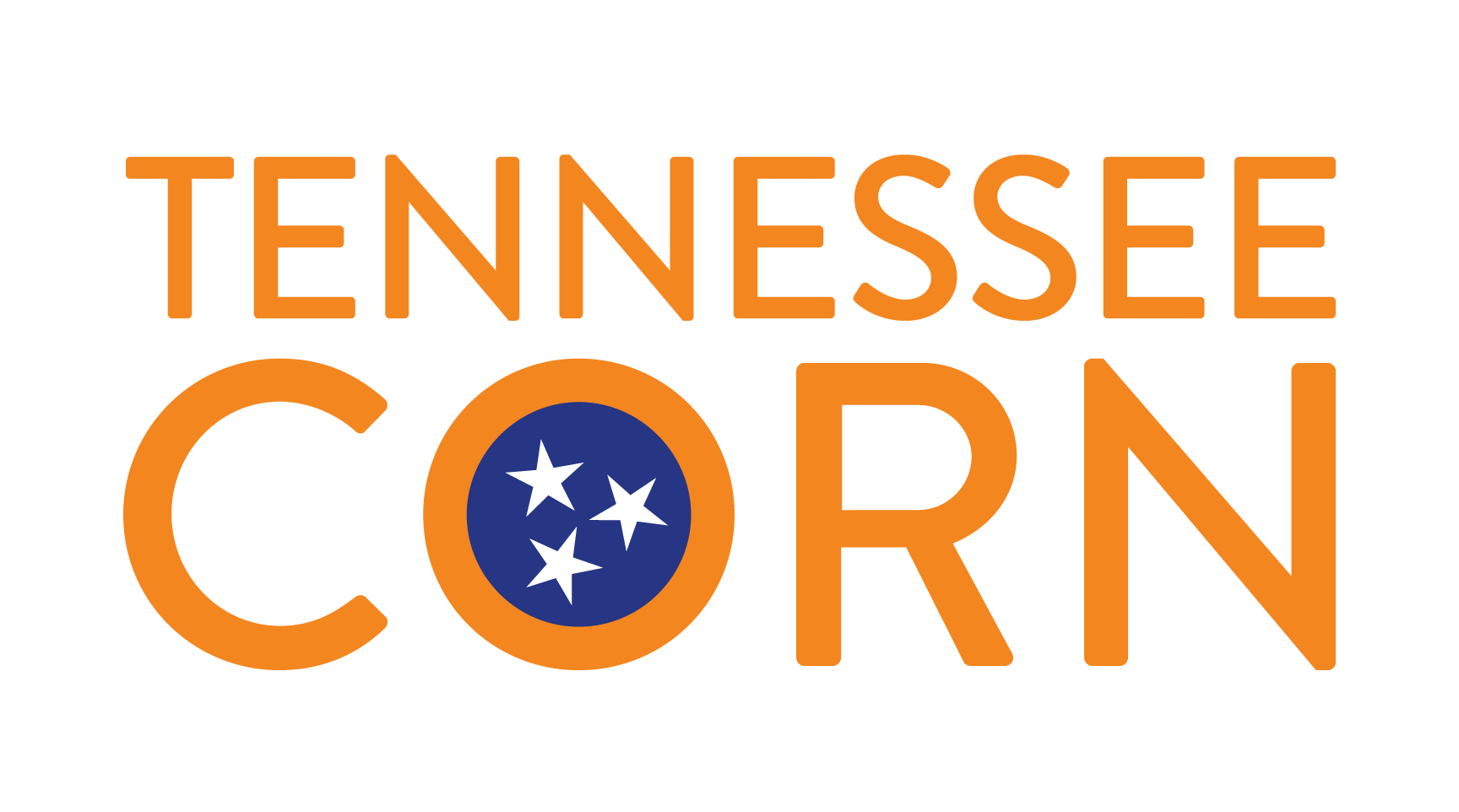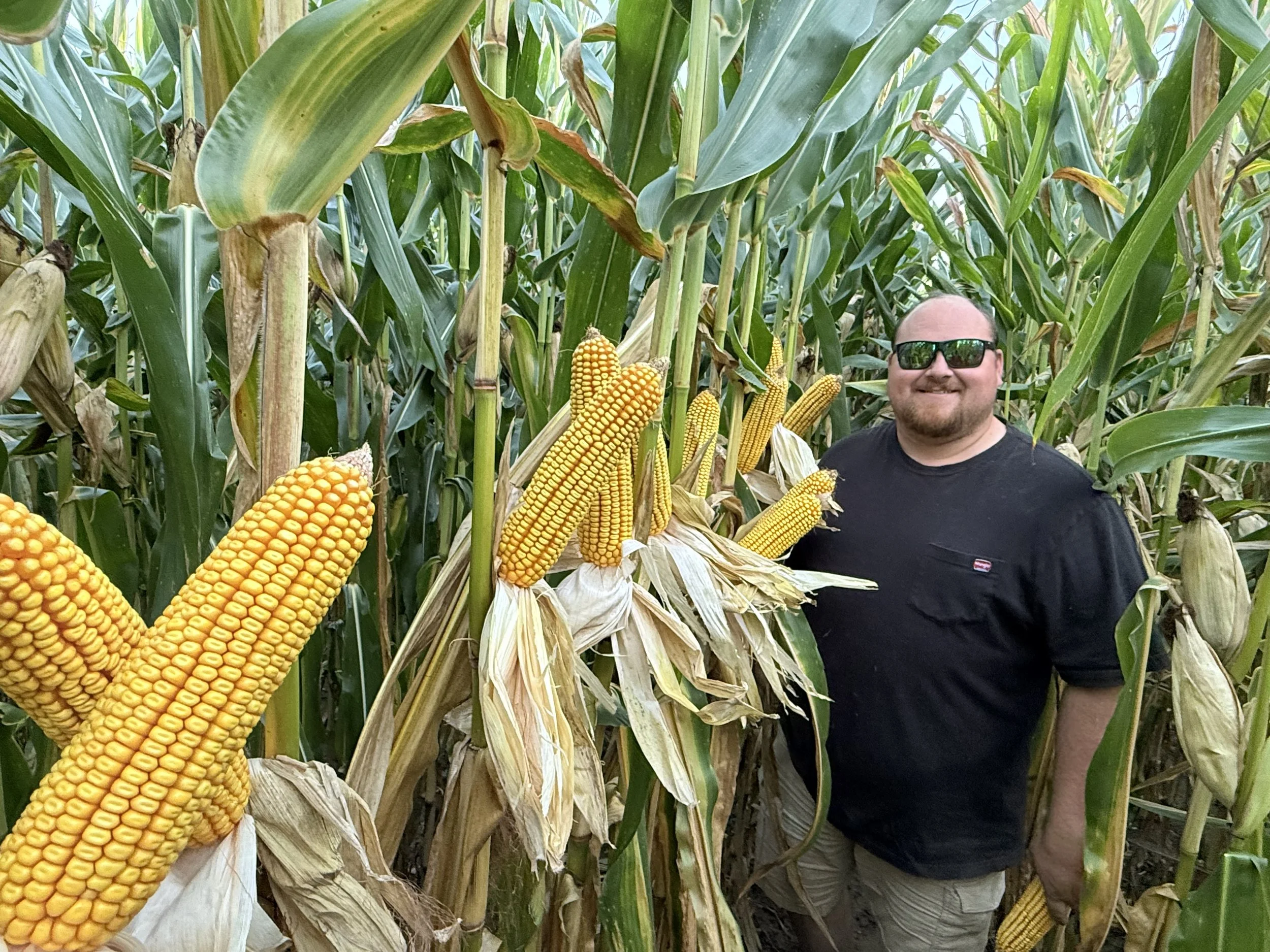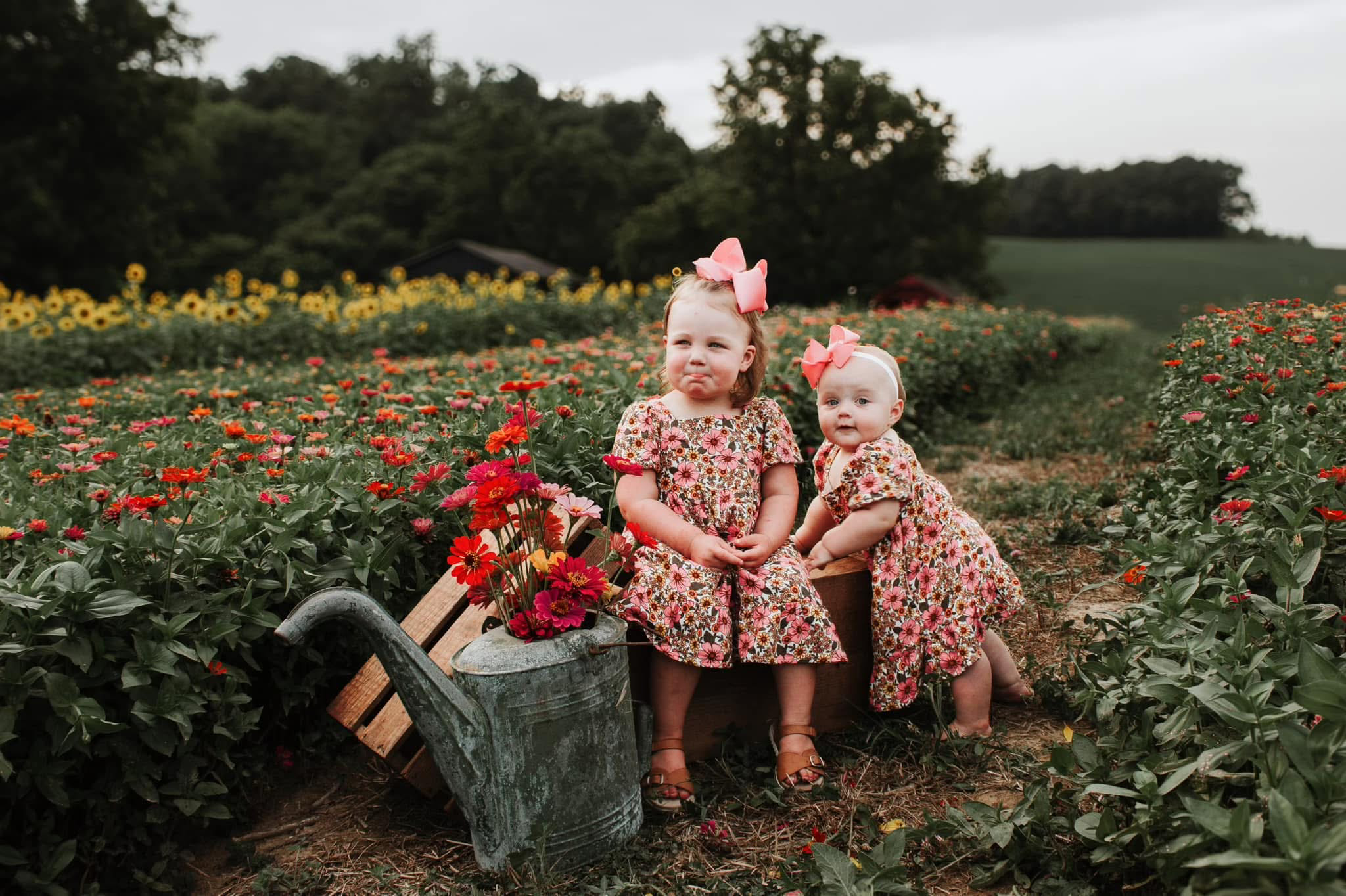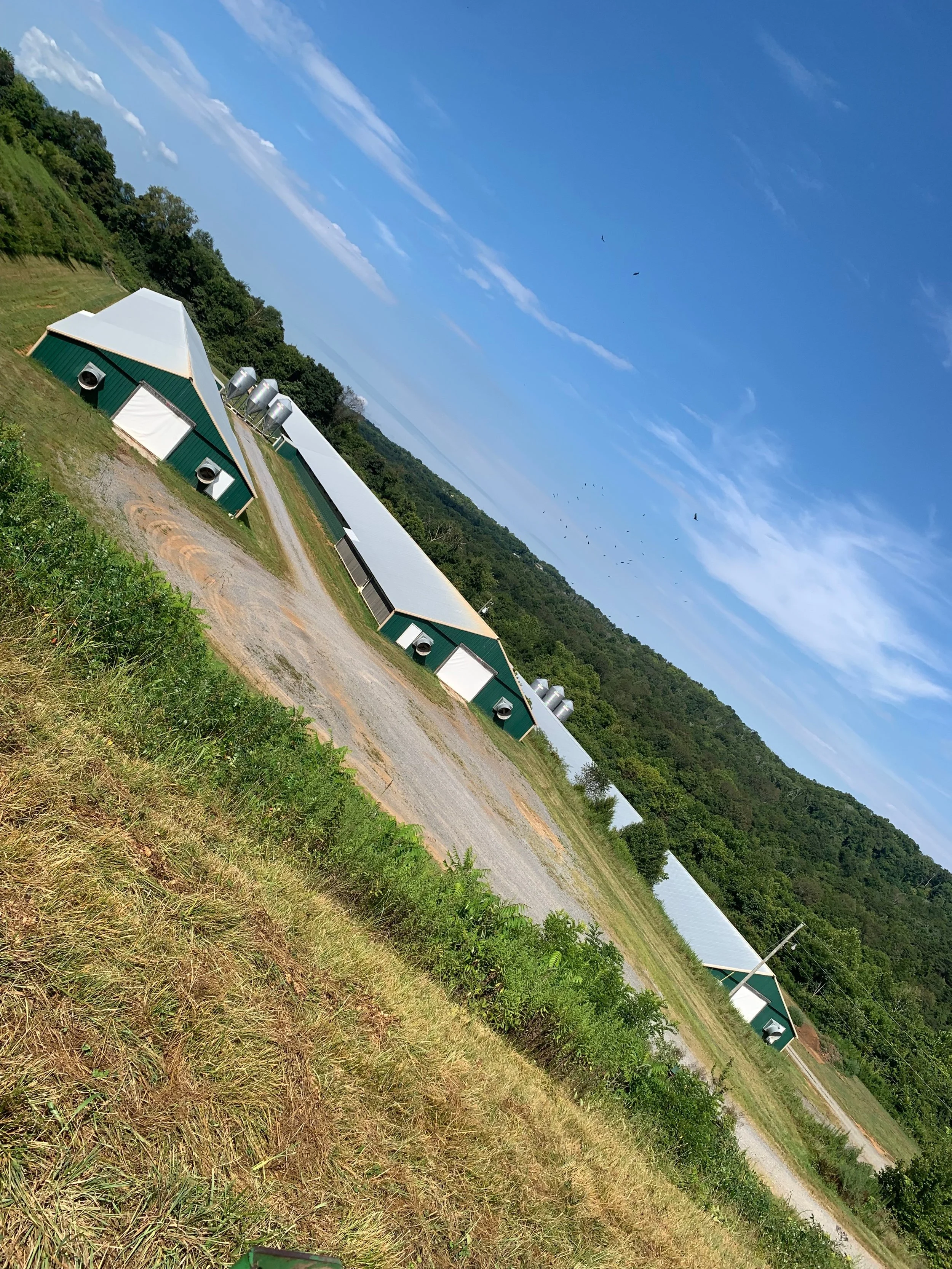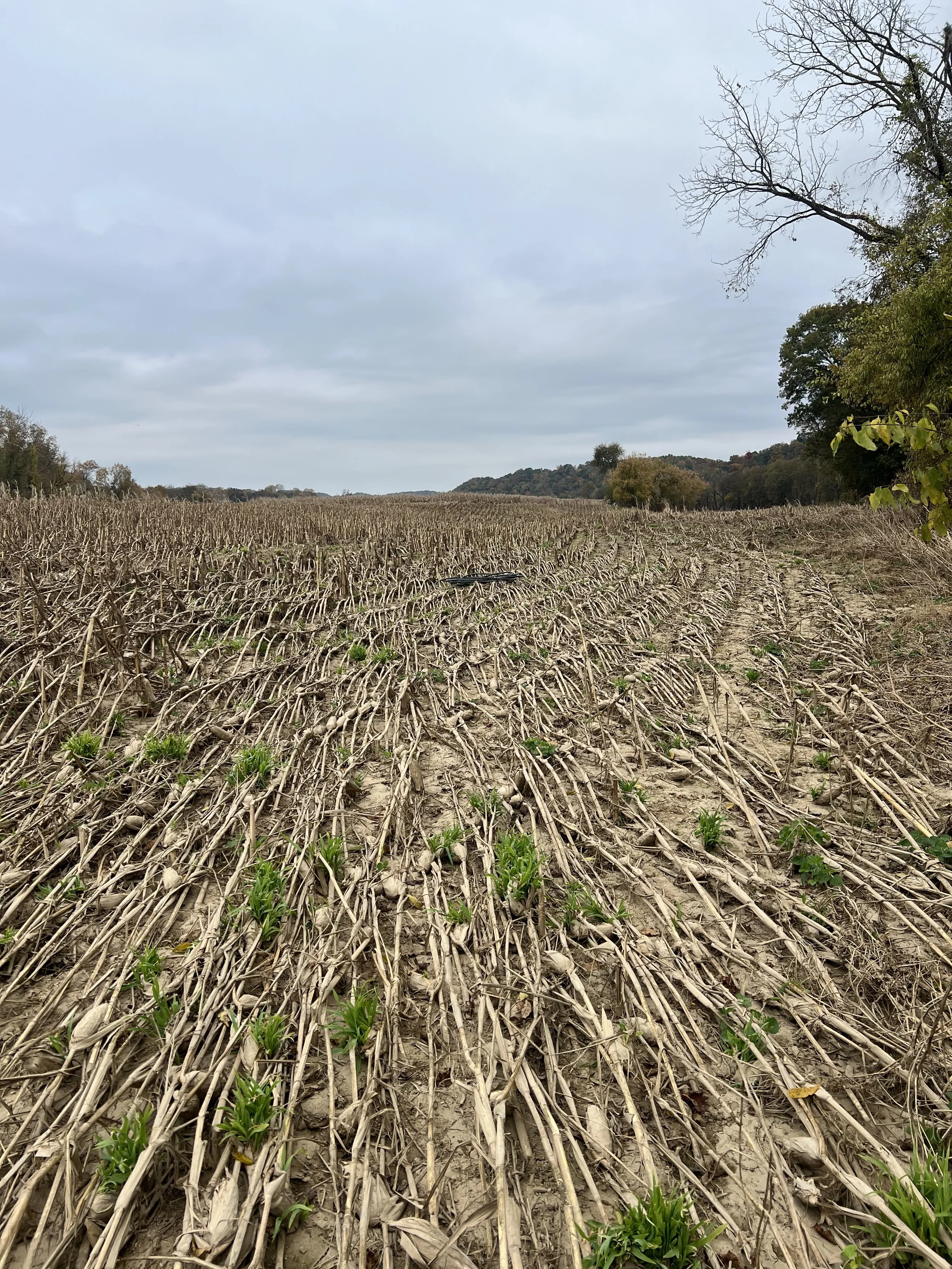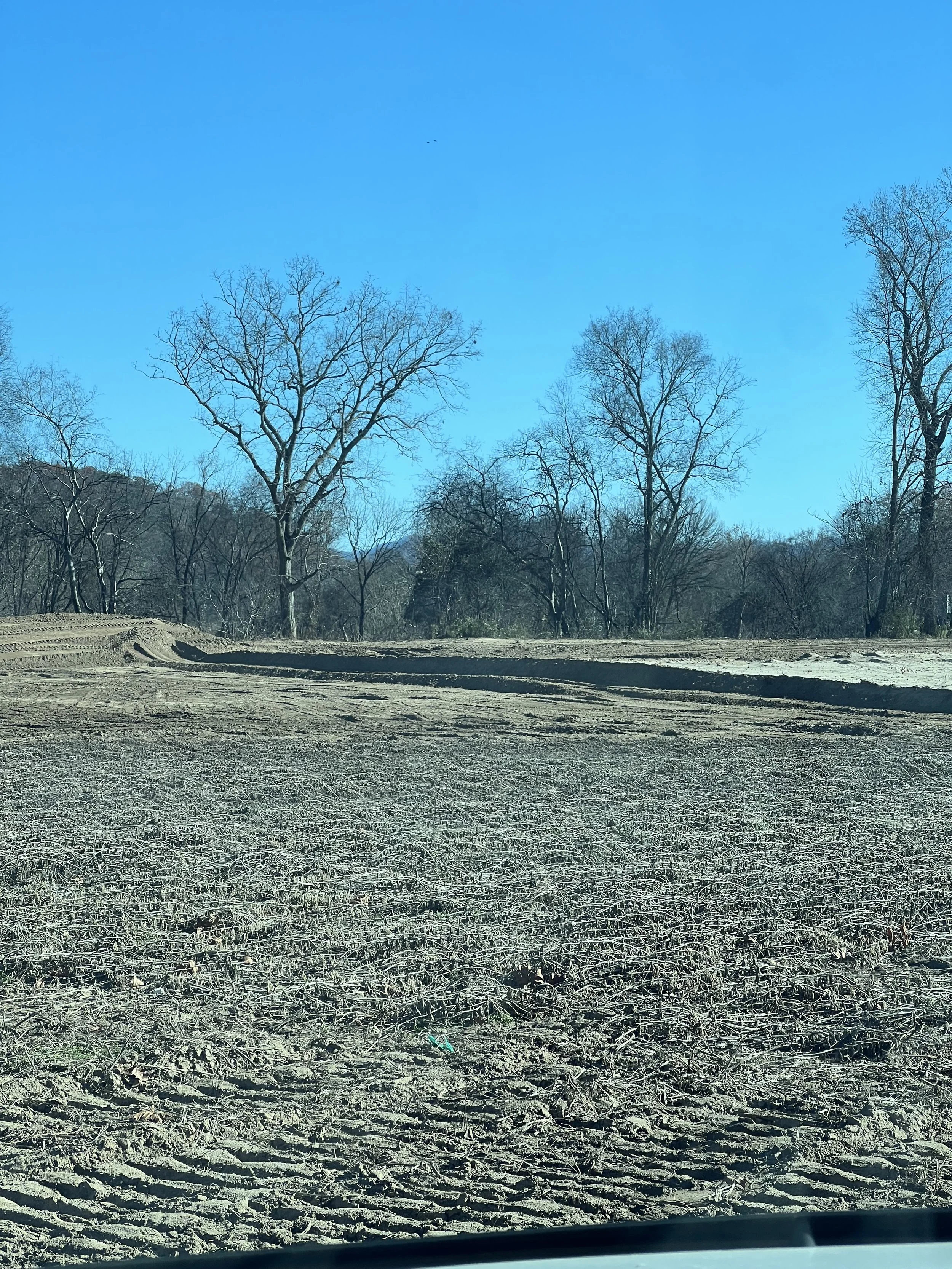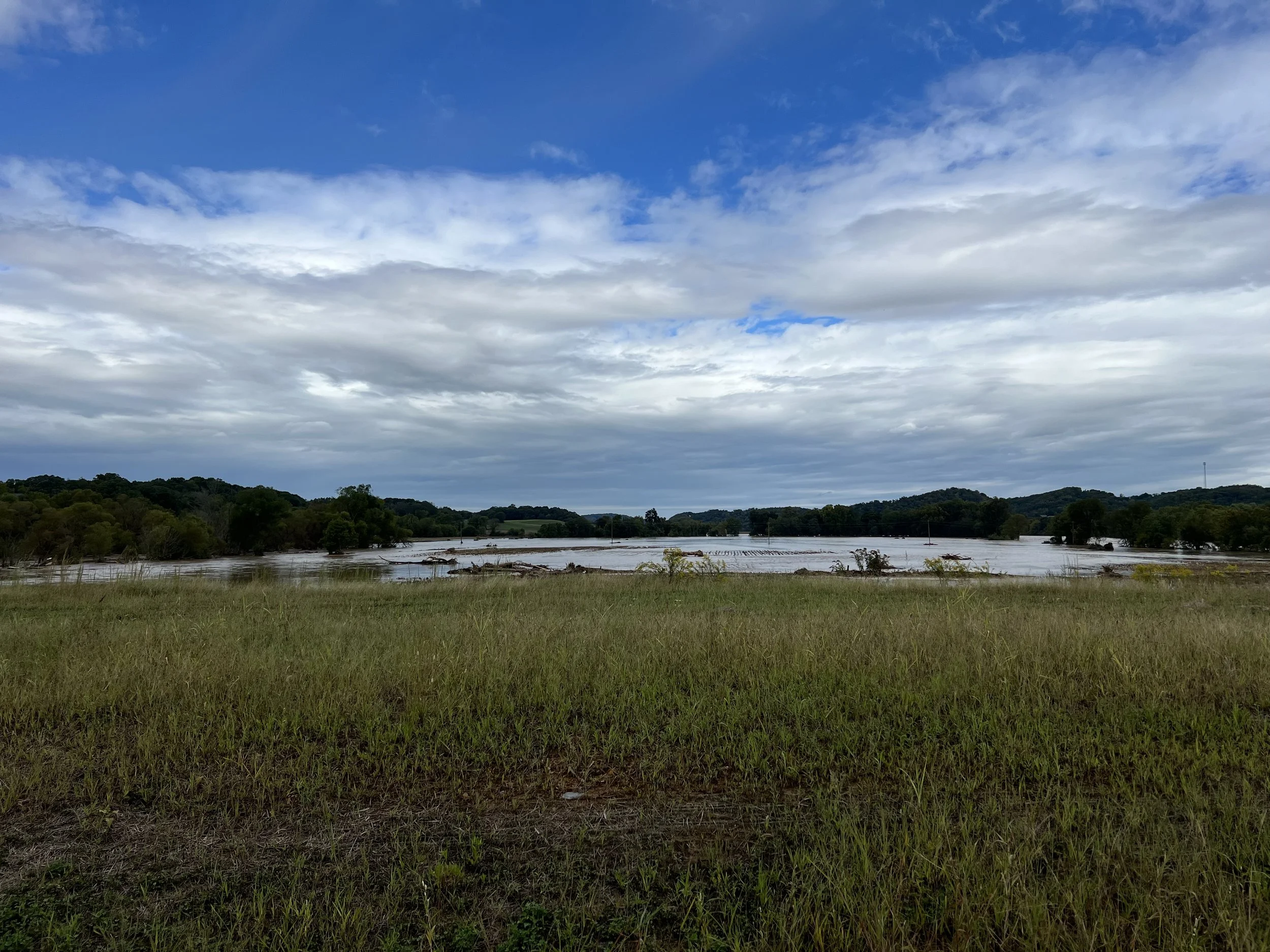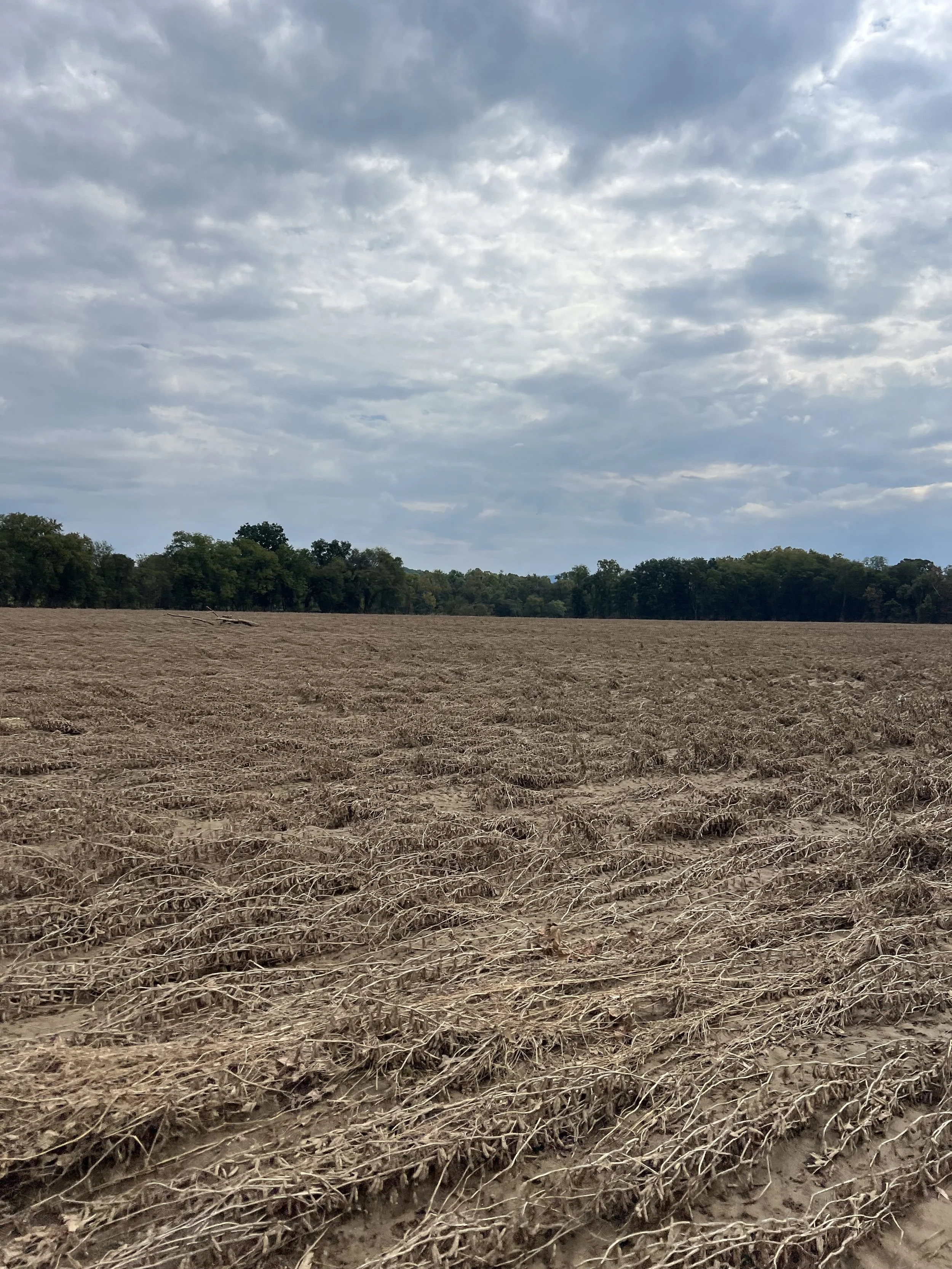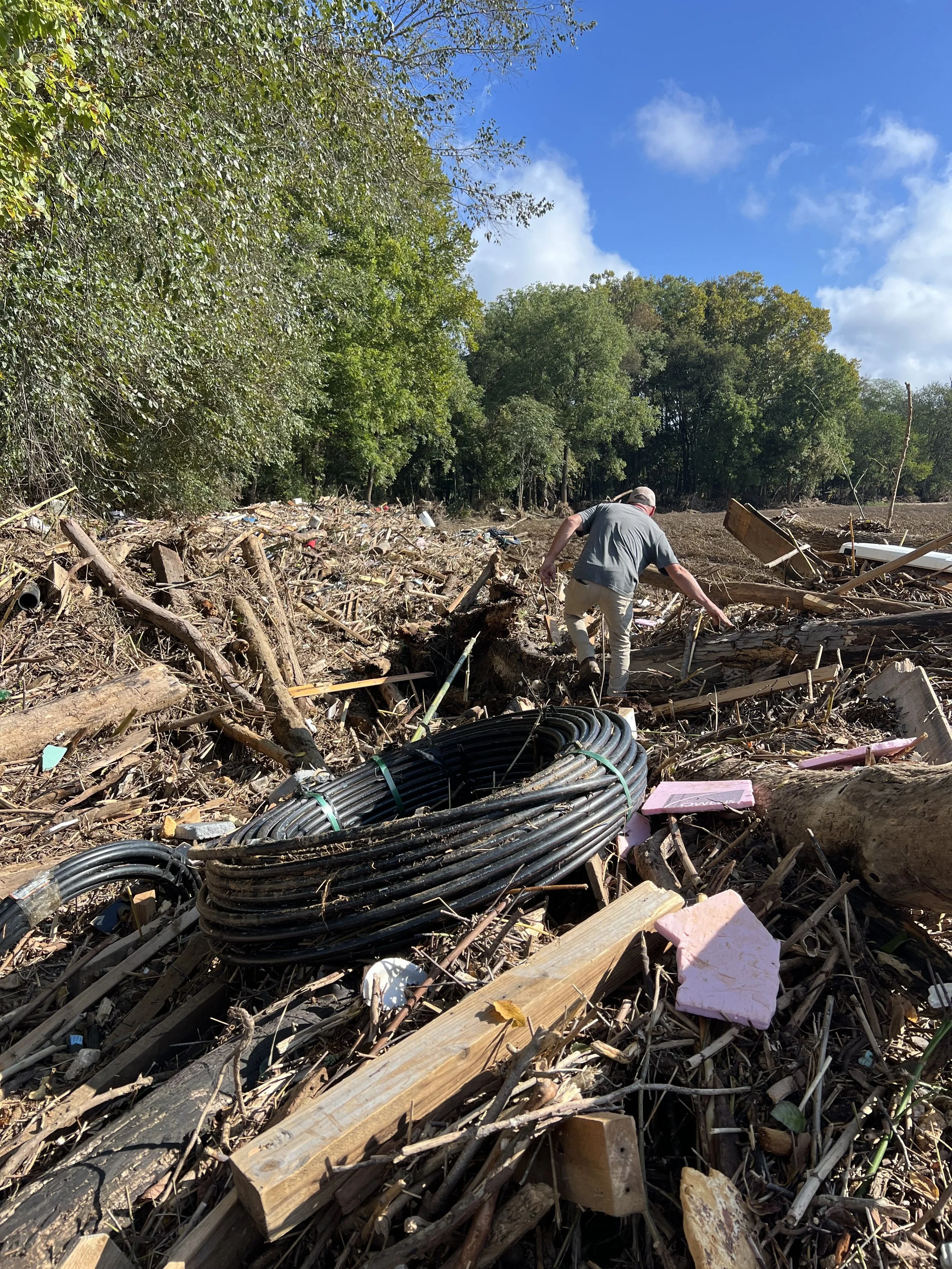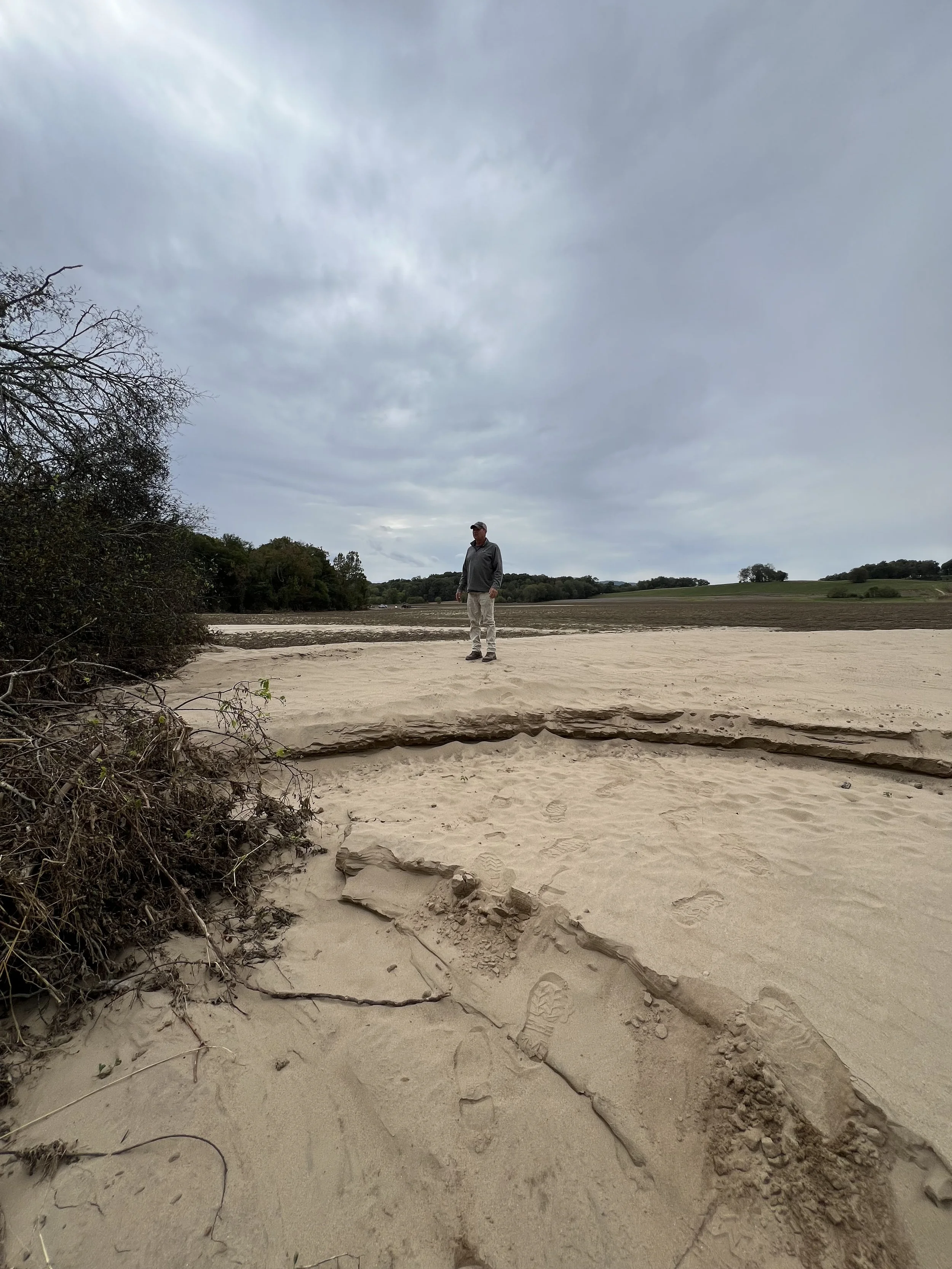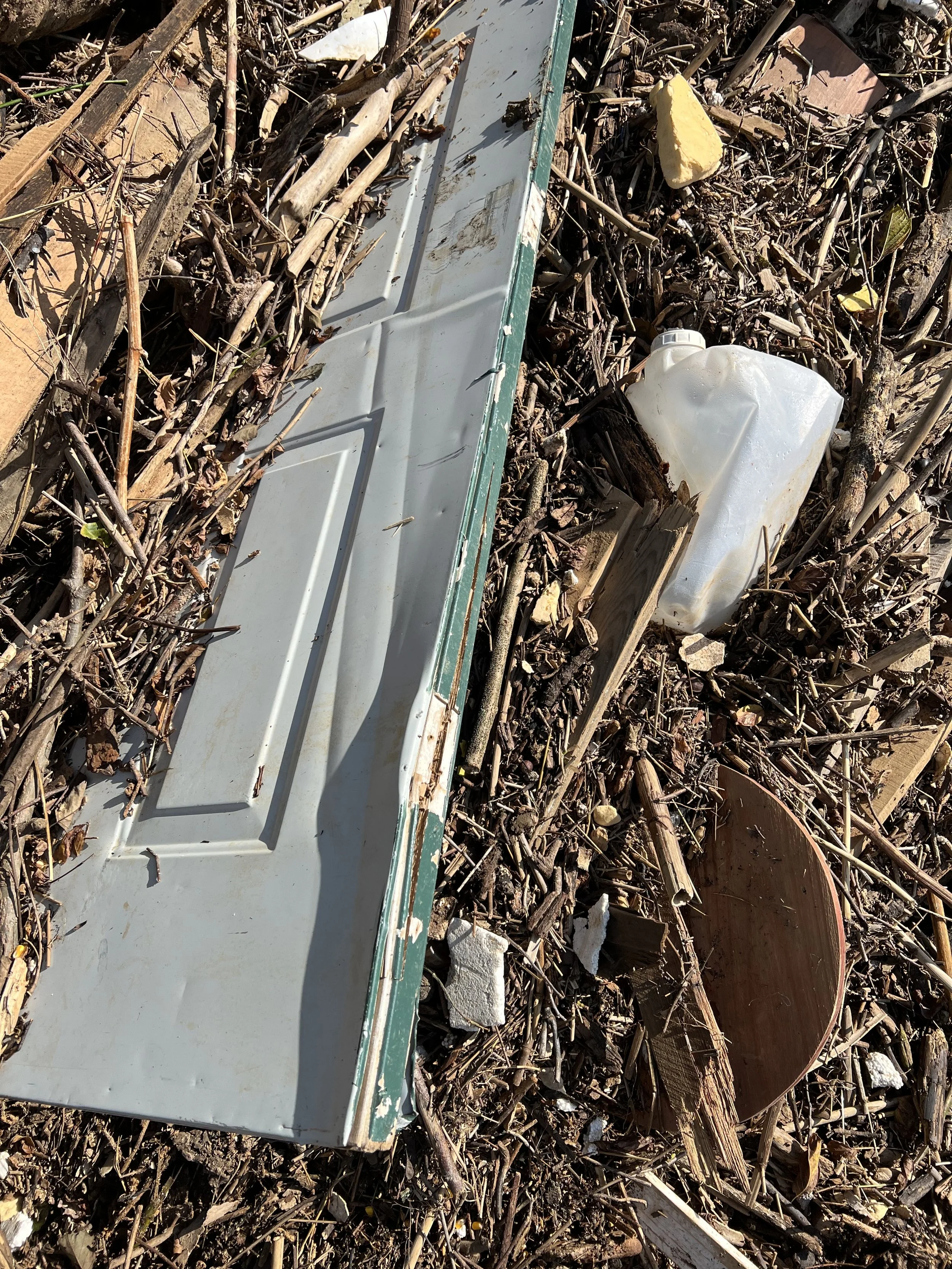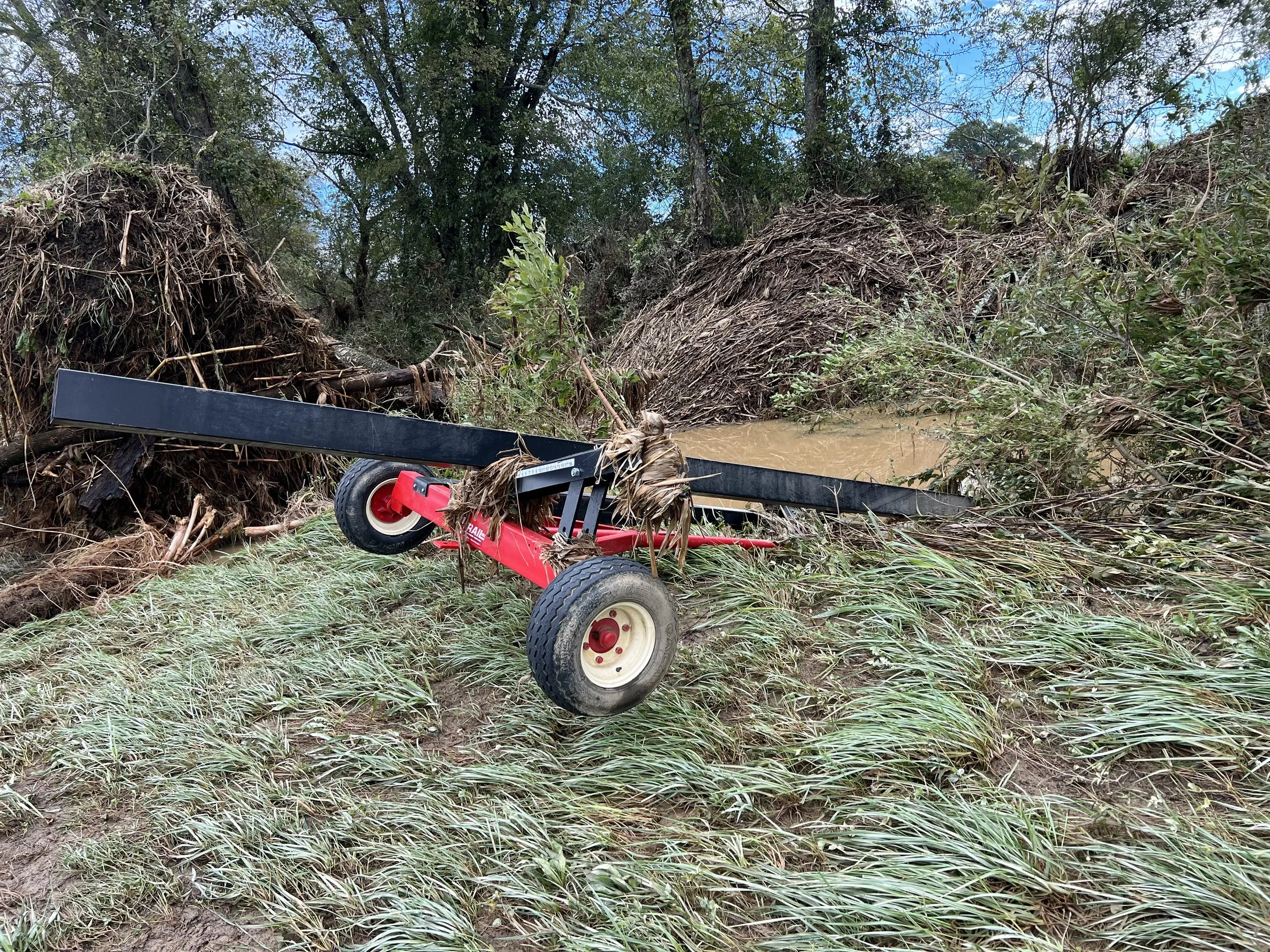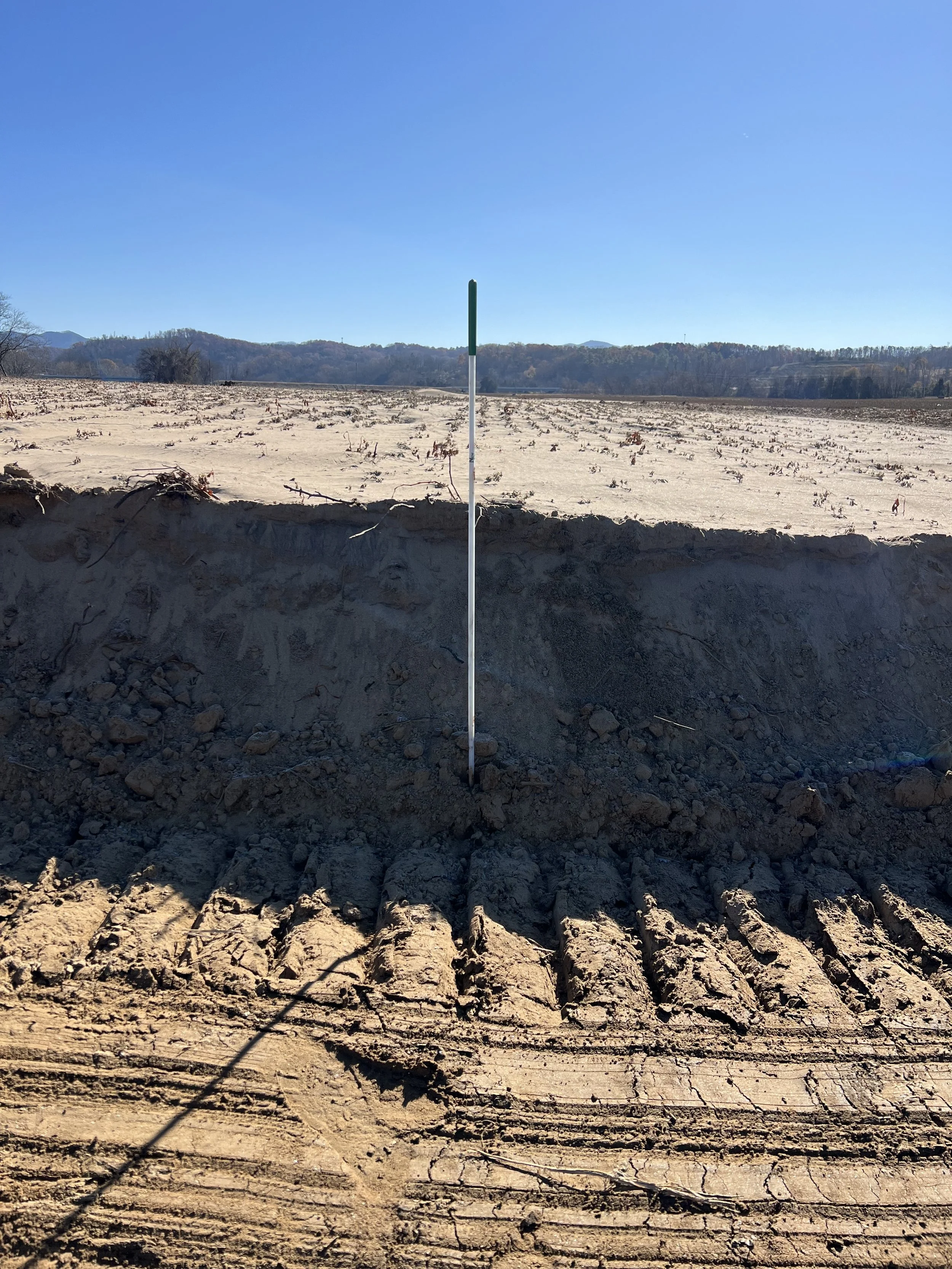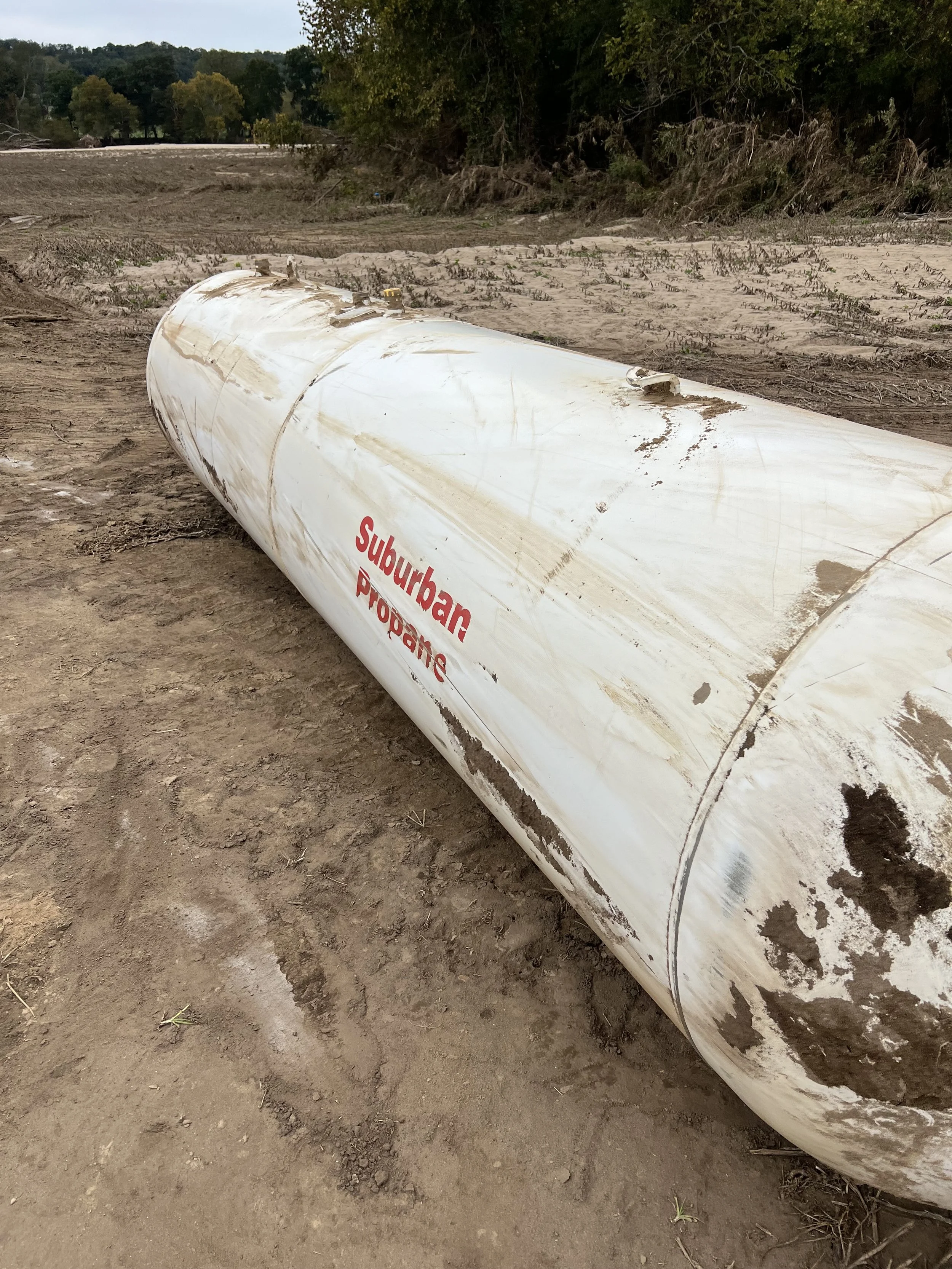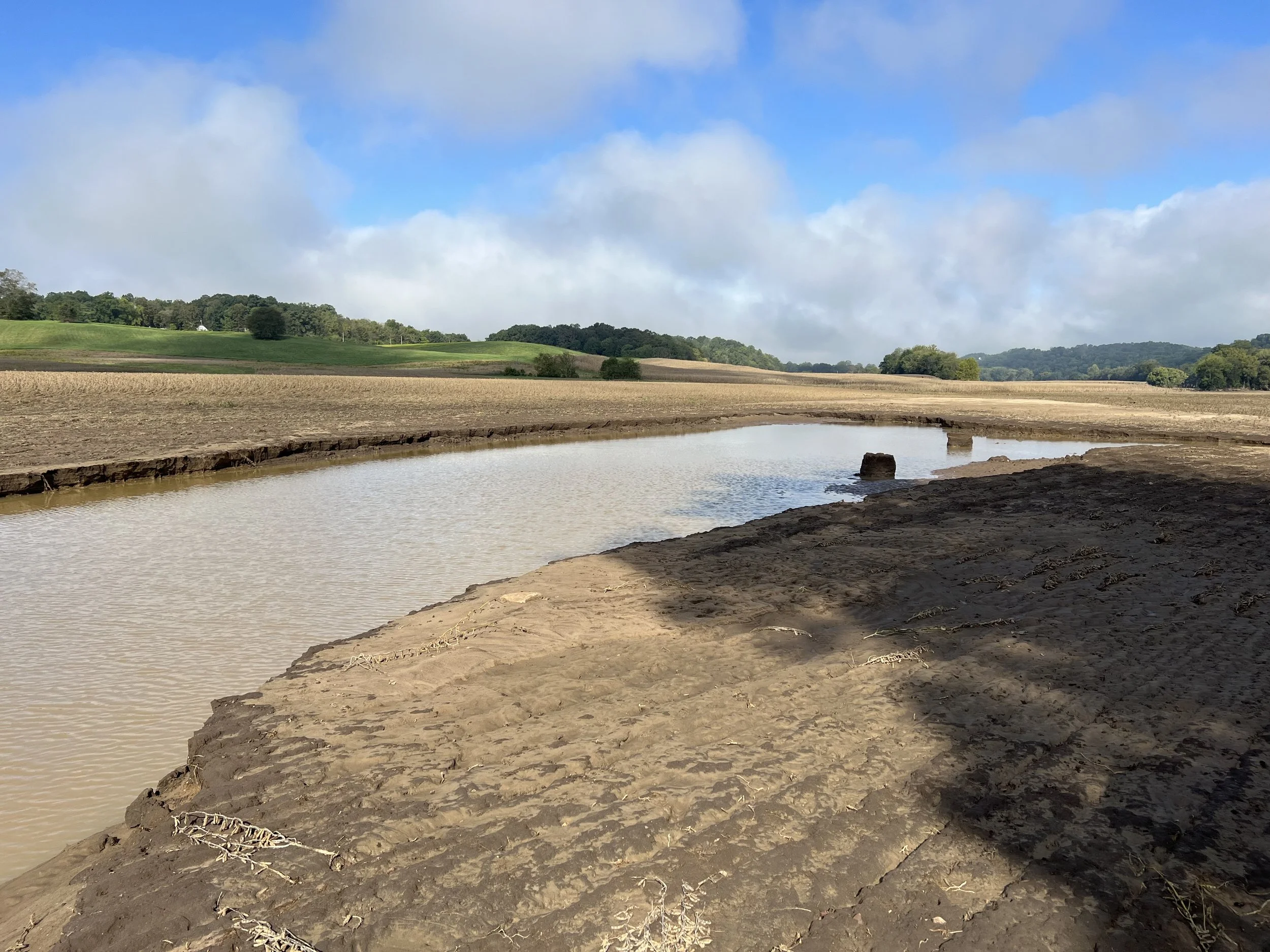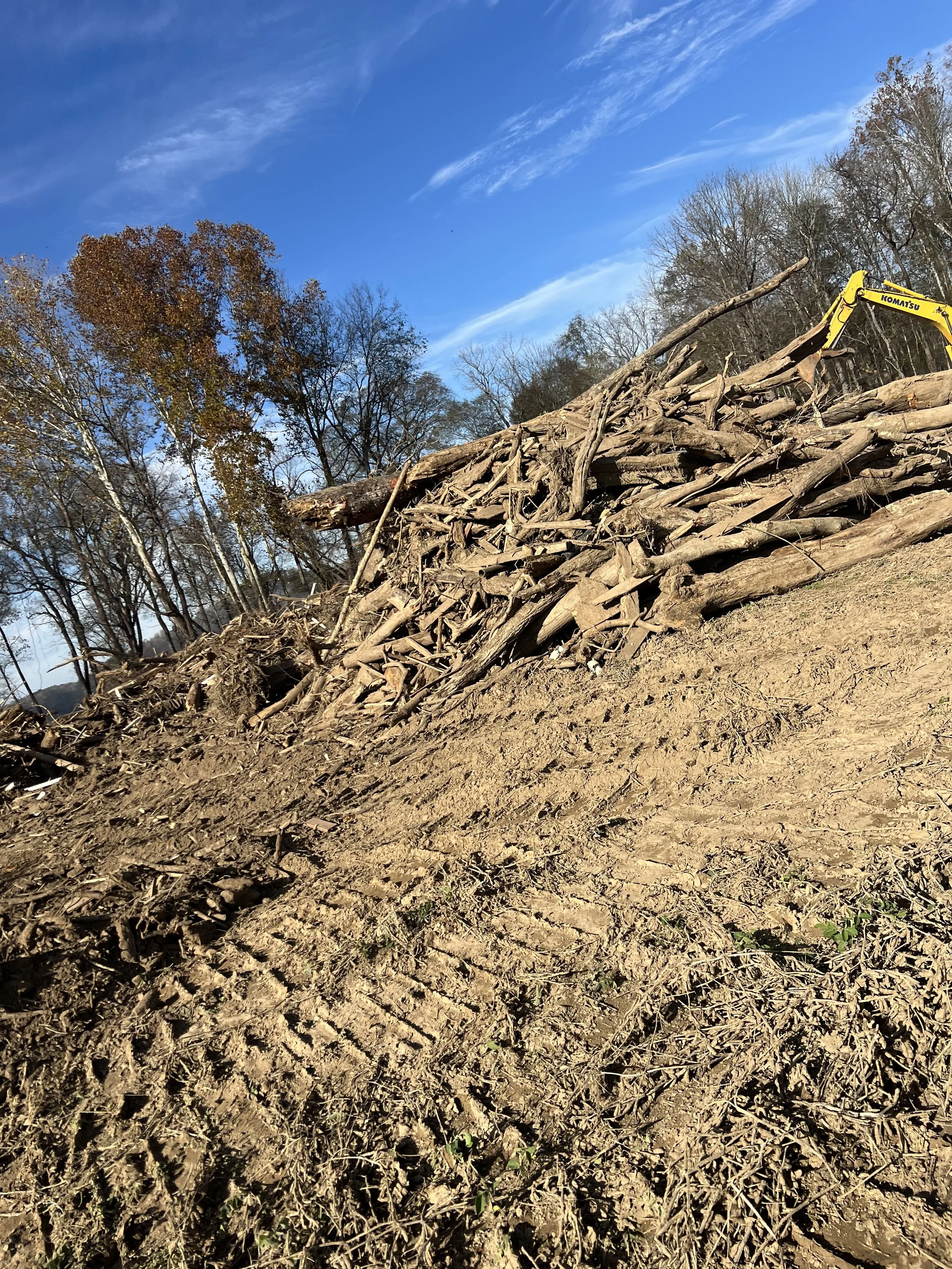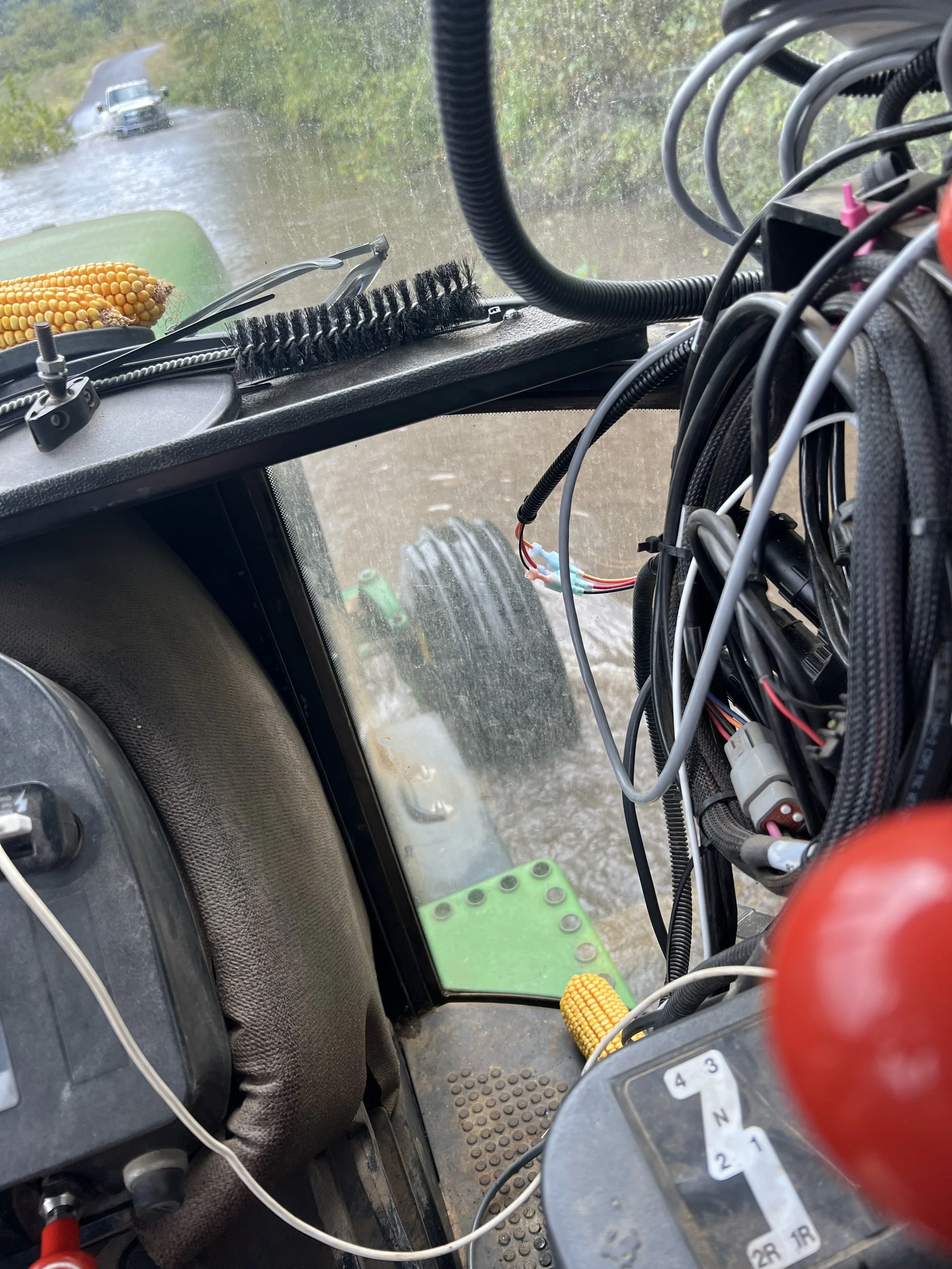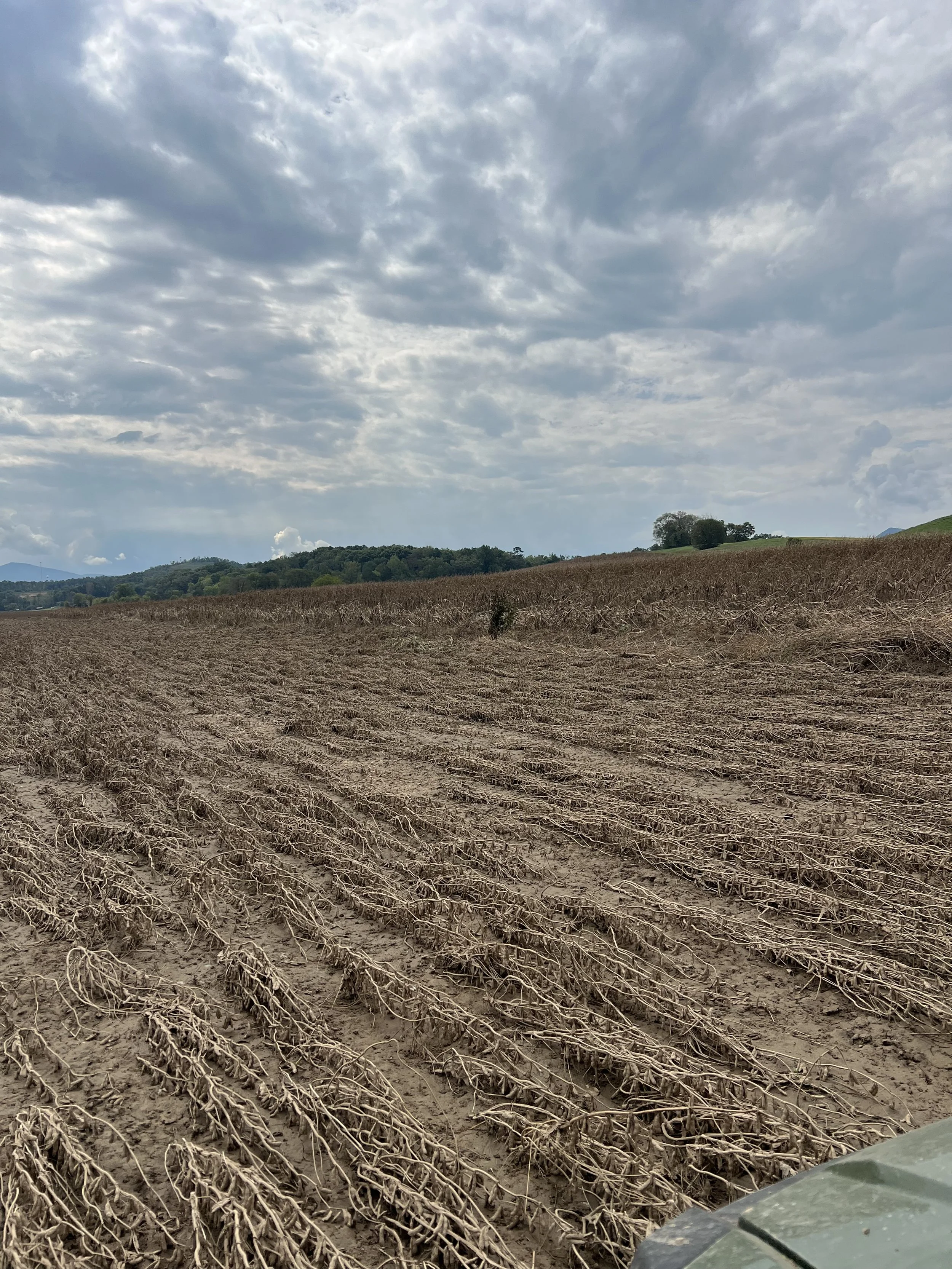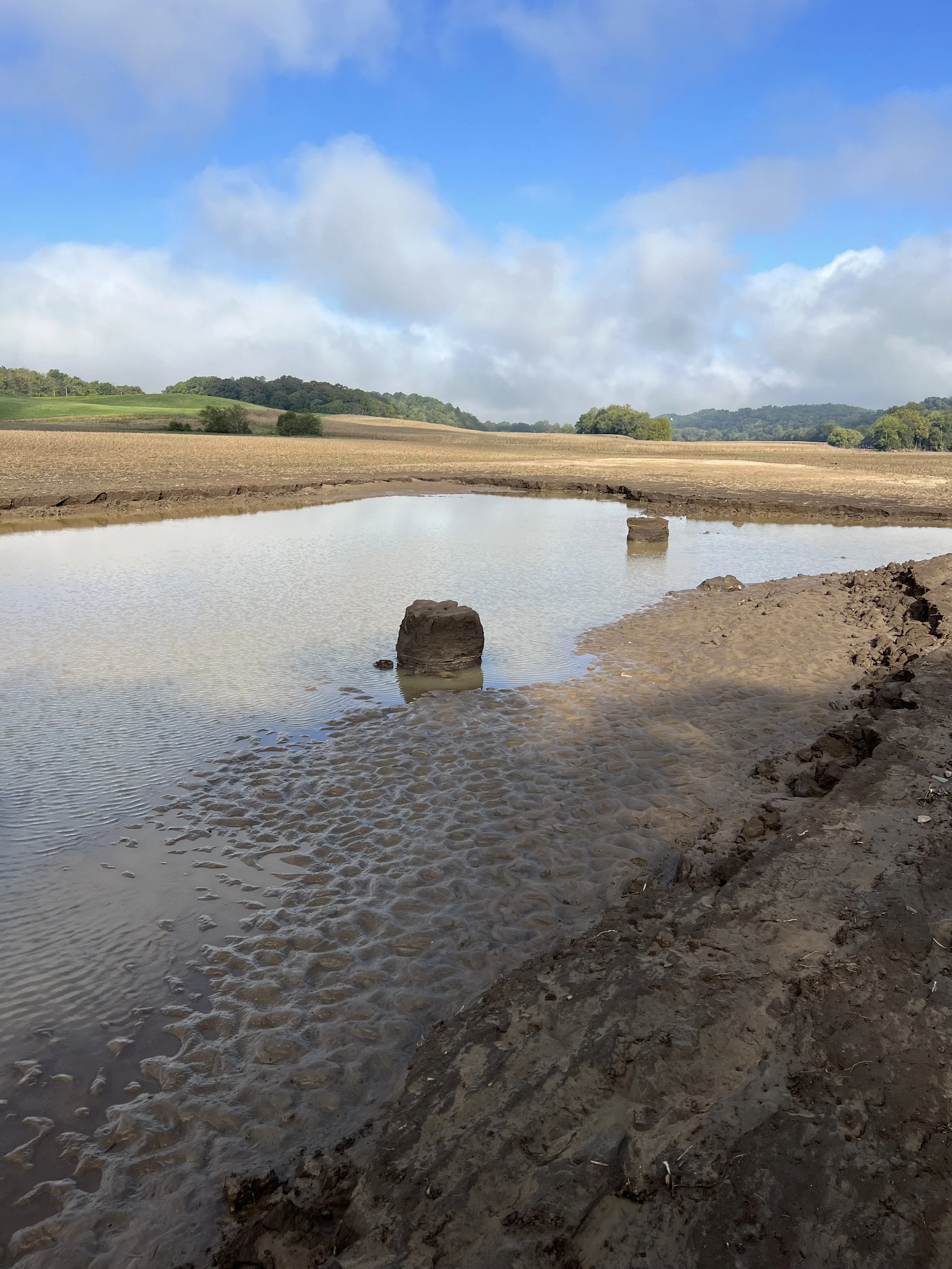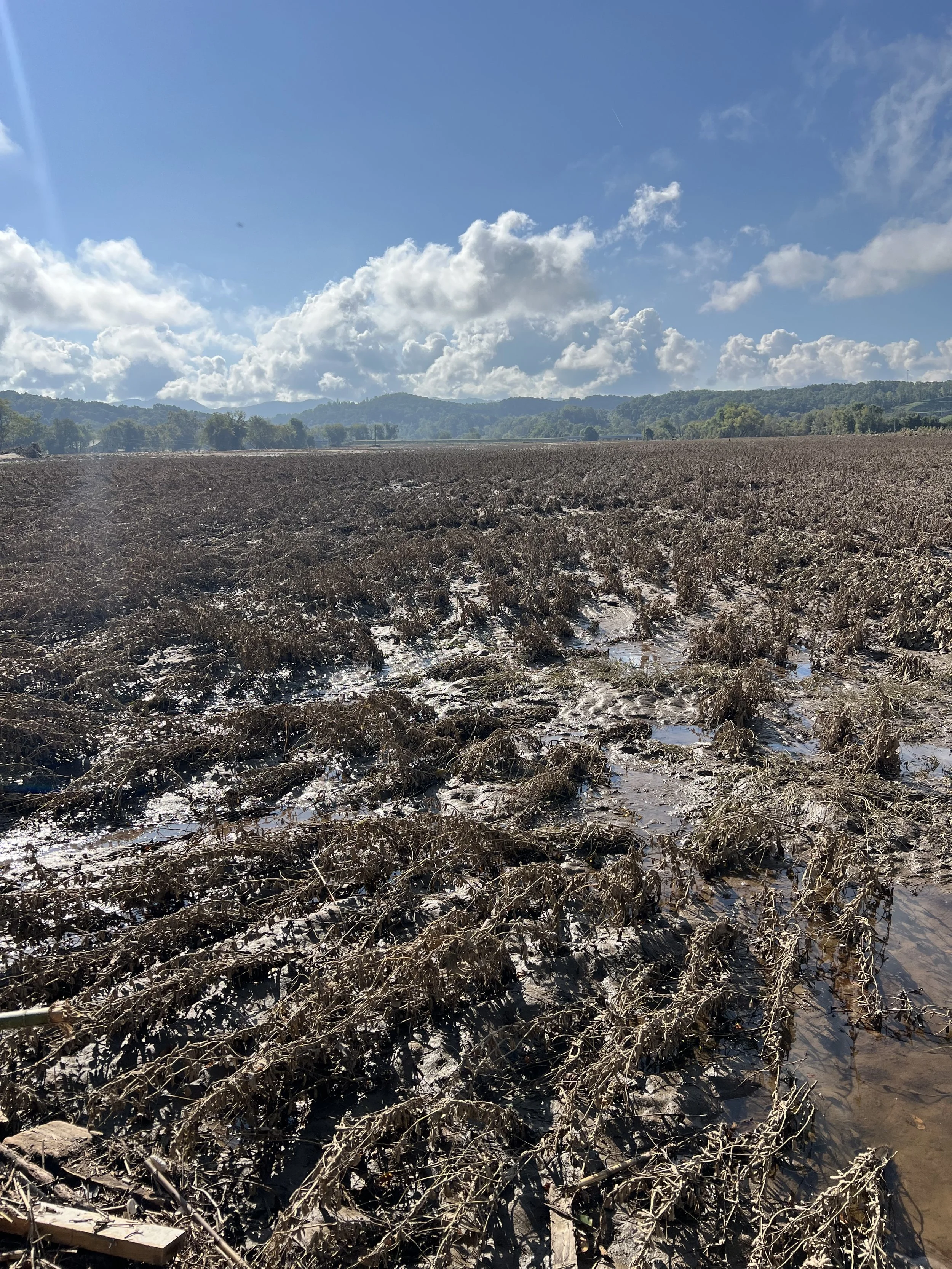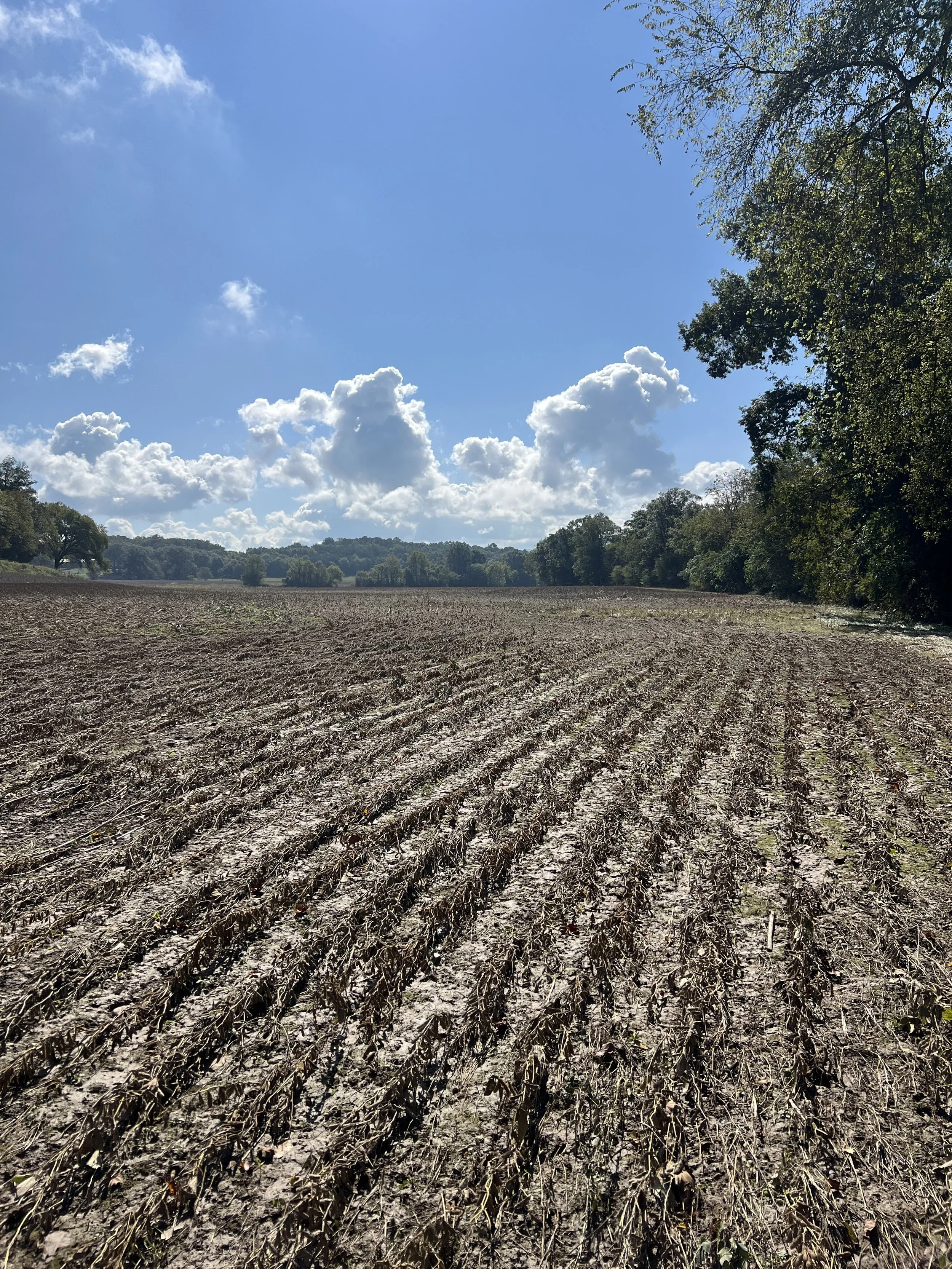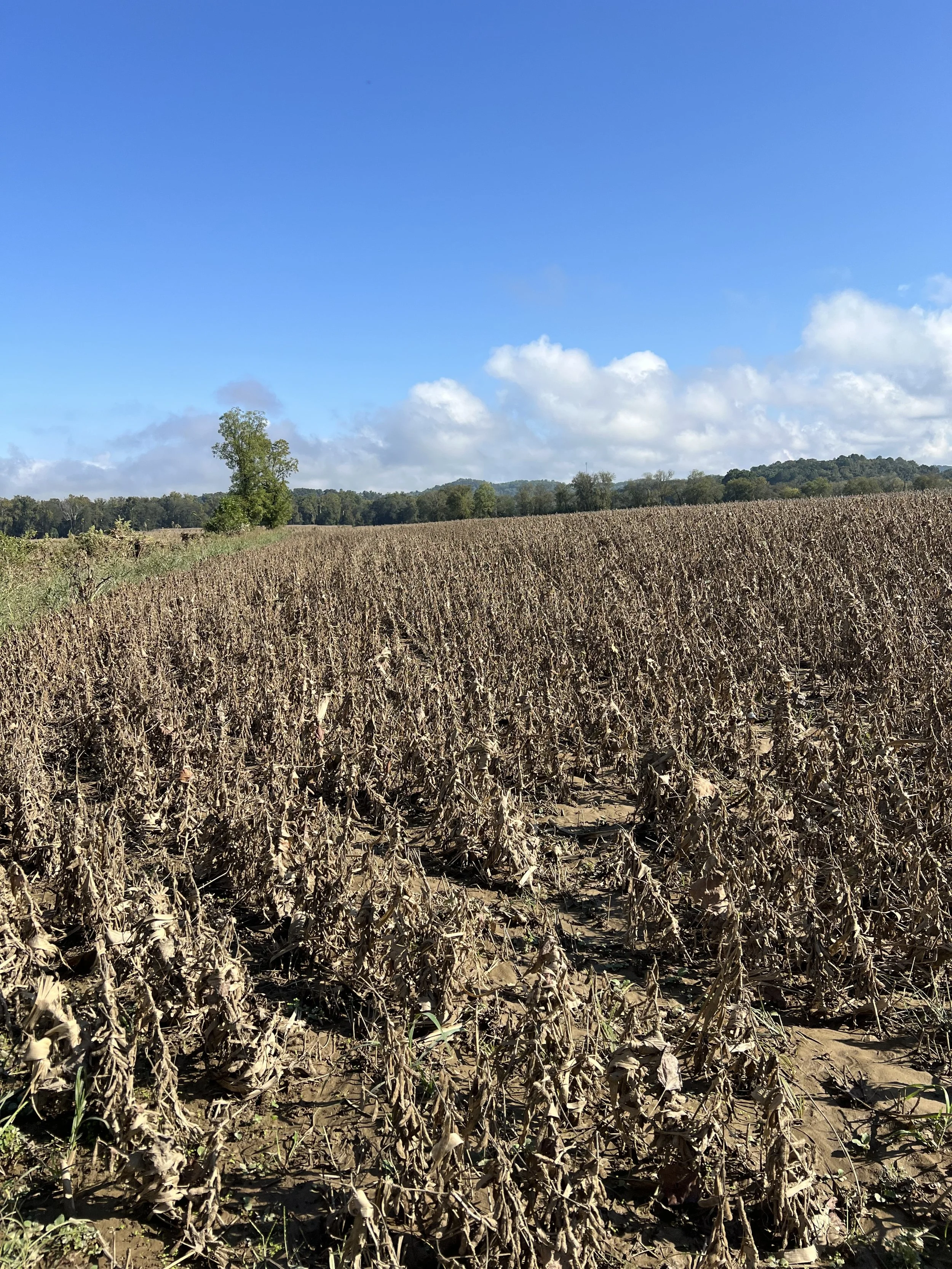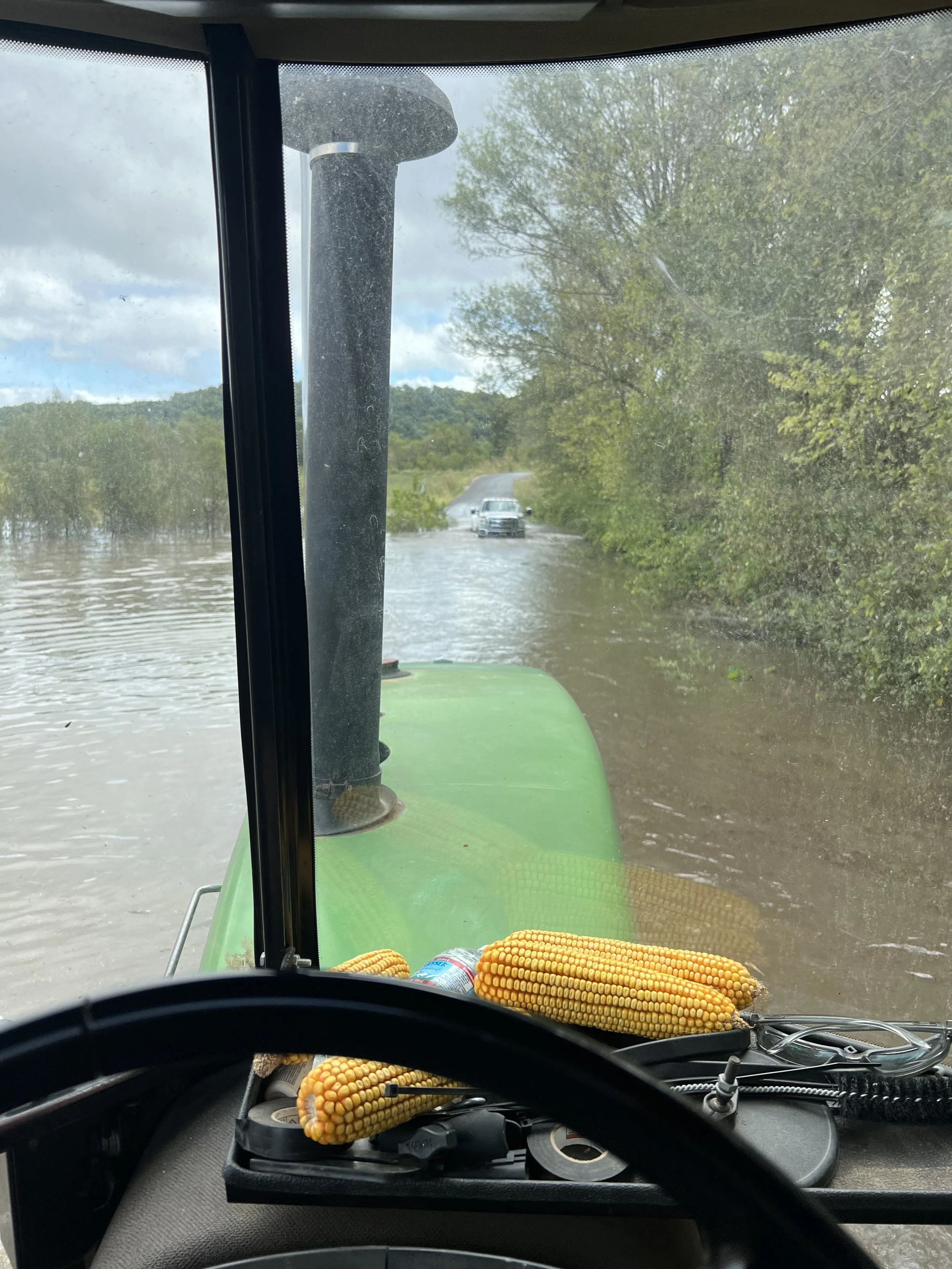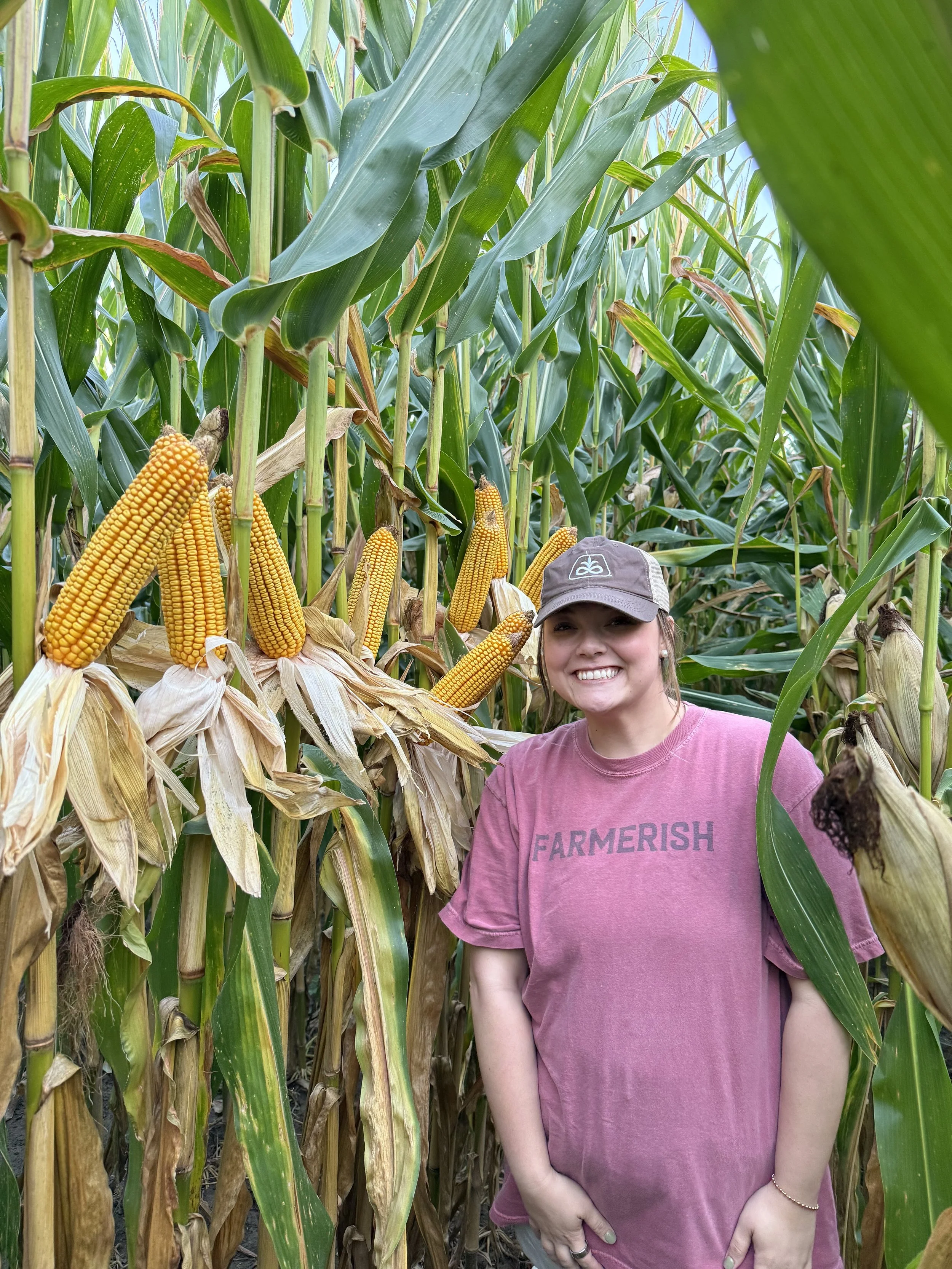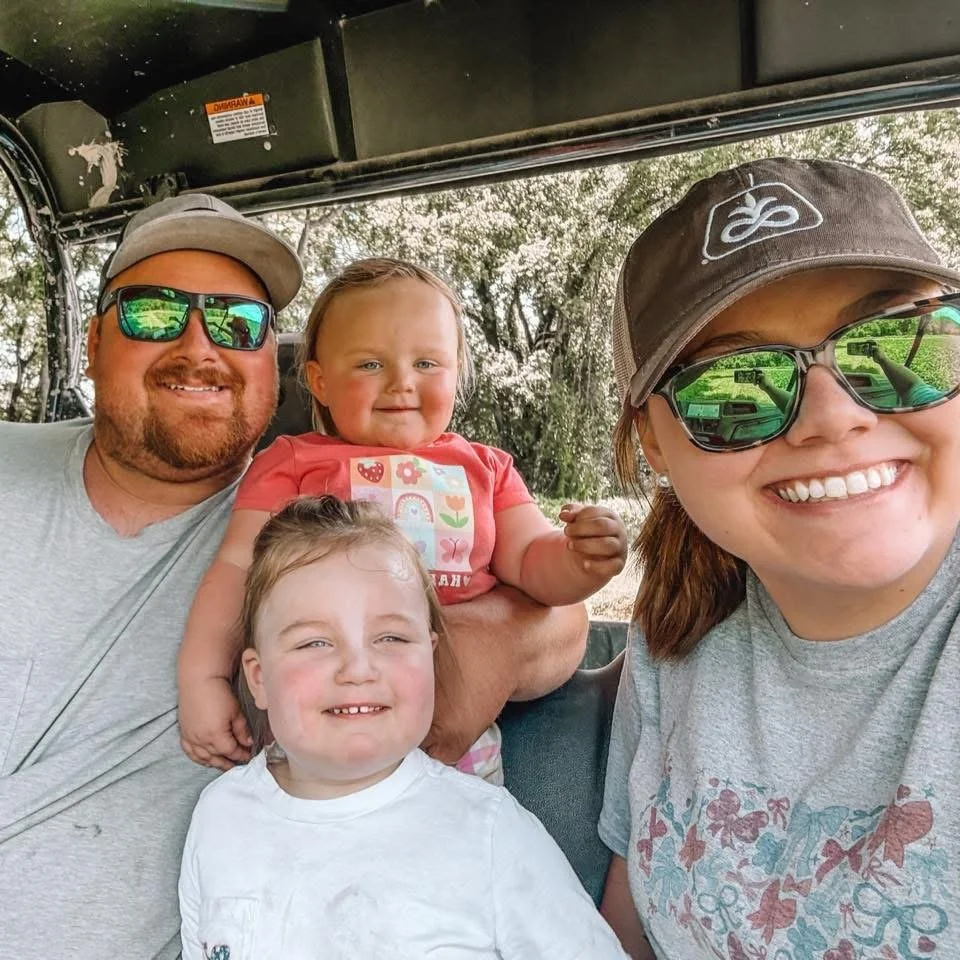Faith, Family, and Farming Through the Flood: How Corn Keeps the Neas Farm Growing
Corbin Neas, fifth-generation farmer and Tennessee Corn Promotion Board member.
For Corbin Neas of Parrottsville, Tennessee, farming is in his blood. As a fifth-generation farmer and member of the Tennessee Corn Promotion Board, Corbin has built on his family’s long tradition of hard work, faith, and resilience.
We sat down with Corbin to talk about how he got into farming, his experience weathering last year’s devastating flood from Hurricane Helene, and how corn continues to anchor their family farm’s success.
Q: Tell us about your farm and family operation.
Corbin:
I’m fifth generation, and our family’s farm is in Parrottsville, a small community right outside of Newport in Cocke County. We’ve got commercial broiler houses and a row crop operation, along with forages like hay and straw. Altogether, we manage around 900 acres – about 800 in row crops and another 100 in hay and forages. My wife Jessica also grows cut flowers on the farm.
Corbin & Jessica Neas’ daughters in their cut flower garden.
We operate eight separate broiler houses between my parents and me. My mom and dad operate five houses, and my wife and I manage three. On the crop side, it’s a family effort – me, my dad, and my wife all work together. And at the end of the day, we get to come home to our two little girls, who are two and three. They’re a big part of what keeps us motivated.
Q: How did you get started in farming?
Corbin:
I grew up around it. My dad farmed his whole life. He started out raising tobacco and cattle, then moved into poultry. When I was in high school in 2011, my parents bought their first chicken houses. I helped with those growing up and just fell in love with farming.
Three of the commercial broiler houses on the Neas Farm.
After high school, I went to Walter State Community College and earned a degree in ag business. I graduated on a Friday night, and that Sunday, my wife (who was my girlfriend at the time) and I drove up to northern Ohio and bought my first combine. That was the start of it all.
I worked off the farm for several years at a poultry facility while farming part-time. Then in 2020, another set of chicken houses came up for sale. We prayed about it, ran the numbers, and took the leap. By 2021, I was farming full-time, and we’ve kept growing ever since.
Q: What role does corn play in your operation today?
Corbin:
Corn is a big part of what we do. It fits into our crop rotation and helps balance our cash flow. We use chicken litter as our main fertilizer; the corn feeds the chickens, and the litter feeds the crops. It’s all connected.
Q: Last year’s hurricane brought major challenges. What was that experience like?
Corbin:
We were in the middle of harvest and knew the storm was coming, but we didn’t think it would be that bad. Around here, we always say the mountains protect us from the worst of the weather.
That week, we were shelling corn and had just pulled our NCGA yield contest plots when the rain started. By Friday morning, both the Pigeon and French Broad Rivers were out of their banks. We went down to move equipment out of the bottom ground. When we got there, the water was ankle-deep at first, but within fifteen minutes it was waist-deep. We barely got the tractor and semi out.
My wife, mom, and kids were across town at the grocery store when they shut the bridges down. They had to drive an hour and a half out of their way just to get home. There wasn’t anything we could do but watch. We lost about 220 acres, and a lot of our beans and corn were flattened by mud. Because of the moisture, the corn sprouted in the husks. It just wasn’t salvageable.
Some of the flood damage on Neas Farm from Hurricane Helene.
Q: How did you recover after the flood?
Corbin:
It was tough. We’d been in a drought leading up to the storm, and our river-bottom fields were our best ground, but they were wiped out. After the flood, we went straight into salvage mode, focusing on what we could save, shelling what we could, working with crop insurance, and just waiting for things to dry out.
The support we got from the community was unbelievable. I had over 100 calls and messages from neighbors, Farm Bureau, and even the Deputy Ag Commissioner checking on us. Our county extension agent, Sarah Orr, set up donation drives for hay and supplies at the fairgrounds. Co-ops donated diesel fuel. Everybody came together. That’s when you really understand why we’re called the Volunteer State.
Q: Did that experience change your cropping plans for this year?
Corbin:
Corbin’s wife, Jessica Neas.
Definitely. We moved wheat to higher ground because it was too wet in some areas, and swapped some planned corn acres for beans due to volunteer corn. It wasn’t a total overhaul, but we had to adapt. That’s farming. Plans change right up to the last minute.
Q: How did that storm affect the way you farm today?
Corbin:
It gave me a new perspective. When you’ve watched your livelihood disappear once, it stays with you. Now, every time a big storm’s in the forecast, I get a little anxious. But faith plays a big role for us. My wife and I always say, “It’ll always work out somehow,” and it always does. You just keep going.
Q: What keeps you motivated after a year like that?
Corbin:
My family. When I come home at night, my two little girls are waiting for me. They don’t care if the crops did good or bad, they’re just happy to see Dad. That keeps me grounded.
Q: What advice would you give to other farmers facing similar challenges?
Corbin:
Corbin with his wife and two daughters.
Farmers are some of the most resilient people you’ll ever meet. We keep going no matter what. My advice would be to keep your head up, look forward, and trust God. He’ll take care of you.
Q: What are your goals for the future, both on the farm and with Tennessee Corn?
Corbin:
Here in East Tennessee, we’ve got a lot of small fields and narrow roads. We’re not built for large-scale farming. I’d like to see more infrastructure built up in our area so we have better access to markets and grain delivery options.
As for the Tennessee Corn Promotion Board, I’m honored to be part of it. If you’d have told me four years ago that I’d be serving on the board, I’d have said you were crazy. But I’m excited and proud to represent Tennessee corn farmers and be part of the work we’re doing to grow opportunities for our state.
Q: Looking back, what are you most proud of?
Corbin:
What my family has built. My parents, my wife, and I – we’ve worked hard to grow this operation together. It’s not easy, but I’m proud of what we’ve created and where we’re headed.
Want more stories like this?
Get the latest Tennessee corn farmer features, updates, and insights delivered to your inbox. Sign up for our newsletter to stay connected with what’s growing at Tennessee Corn.
About the Tennessee Corn Promotion Board
The Tennessee Corn Promotion Board (TCPB) works on behalf of Tennessee’s corn farmers to invest checkoff dollars in research, market development, education, and promotion. Through these efforts, TCPB helps ensure a strong future for corn production across the state, while connecting the value of corn to consumers, livestock producers, and the industries that rely on it. TCPB is committed to supporting sustainable farming practices, expanding market opportunities, and telling the story of Tennessee corn growers.
